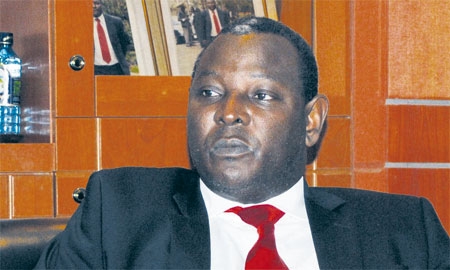The visionary leaders of the independence days focused on solving the socio-economic and political problems of the continent. They were extremely focused, committed and passionate. “Today we have another generation that has experienced poverty in a world of plenty, a generation that is highly educated, knowledgeable and not only looking to address the political challenges that have to be dealt with, but the social and economic challenges as well,” says Dr James Mwangi, managing director and CEO of Kenya’s
Equity Bank.
“I guess that is what is guiding every step we take – we feel that Africa has lived in poverty for too long and as a generation we need to make our contribution. So, there is indeed a bit of parallelism with the passion, the enthusiasm and the vision of independence days, but now it is focused on the socio-economic transformation of the continent.”
This new crop of leaders, says Dr Mwangi, is aware that Africa’s progress now will be economic-based. Indeed the continent has enjoyed high growth in recent years, surpassed only by India and China, which has led to an expanding middle class now numbering around 300 million of the continent’s total one billion people.
Consequently, banking is also growing rapidly throughout the continent as large groups diversify their activities and product offerings. Africa’s private sector needs strong banking institutions in order to flourish and the country’s well capitalised banks have a significant role to play in assisting the growth of small businesses and supporting wealth generation.
African banks are well aware of this responsibility. Their efforts over the last decade have changed the perception of the continent’s potential both at home and abroad through the creation of new financial opportunities for citizens and communities that are helping to shape Africa’s future.
Within this phenomenon, Kenya’s Equity Bank holds a special place. “Equity is different from any other financial services provider in the sense that it is more about social investment than providing financial services because of our vision, which is to be an engine of socio-economic transformation in Africa,” says Dr Mwangi.
Equity’s customers call themselves members, reflecting more the feel of a social movement than a bank, and Equity’s members are numerous. Over the past five years, the bank has grown from being the smallest in the country to one of the largest in the region, boasting 5.7 million members and 57 per cent of all the bank accounts in Kenya. Dr Mwangi says that this figure will soon rise to 70 per cent given that 3,500 to 6,000 new accounts are currently being opened at the bank each day, most of which by clients who have never previously banked.
‘EQUITY IS DIFFERENT BECAUSE OF OUR VISION, WHICH IS TO BE AN ENGINE OF SOCIO-ECONOMIC TRANSFORMATION IN AFRICA’
DR JAMES MWANGI, Managing Director and CEO of Equity Bank
|
Since 2004, when it was established as a commercial bank, Equity has grown by 100 per cent every year except for 2008. It has become the third-largest company on the Nairobi Stock Exchange in terms of capitalisation since its listing in 2007 and it is now the largest local majority-owned company in East and Central Africa.
Much of this growth is due to innovative products such as Equity’s mobile phone product M-Kesho, which registered 700,000 new accounts in its first three months and is set to be a game changer in Kenya’s financial sector.
“When Equity became a bank in 2004, only 8 per cent of the population of Kenya was banked. Equity has been able to push that to 23 per cent. Through M- Kesho, we expect to have 50 per cent of the population banked within the next three years, simply because we have been able to remove all the barriers of access to financial services,” explains Dr Mwangi.
Initiatives like these are why Equity Bank was voted Best Bank in Kenya in 2008 and 2009 by African investor (Ai), while Dr Mwangi was chosen as the 2010 African Banker of the Year by African Banker. He was cited as revolutionising Kenya’s banking industry through pioneering the first mobile banking technology in the world to reach out to the unbanked, as well as for championing the empowerment of ordinary citizens through inclusive finance.
The Financial Times named Dr Mwangi as one of the top 50 emerging market business leaders who have shaped the economic performance of their regions. Equity Bank was also named Best Performing Africa investor 40 Company at the Ai Index Series Awards held at the NYSE in September last year.
Equity’s achievements have also been made possible by Kenya’s regulatory regime. Former executive director of the Kenya Bankers Association John Wanyela credits measures that the central bank has taken since the end of the 1990s with helping to create a much stronger sector. “Since then, we have seen the banks grow from strength to strength. Management has changed over time and today they are strong, profitable and well-capitalised institutions.” This, says Mr Wanyela, is serving as a platform for the sector’s current regional expansion.
Governor of the Central Bank Njuguna Ndungu says that if people have no place to put their money, there is no incentive to save. He adds, “Reaching out is a goal for us. We have worked under very tight conditions in terms of legal framework, but we did not shy away from introducing some of these very innovative products such as the mobile phone money transfer system, M-Pesa. We allowed that innovation and since then, it has produced more and more products that are now moving about two billion shillings (£15 million) a day in transfers.”

1 COMMENT
Our best financial institution
I have seen farmers like myself grow